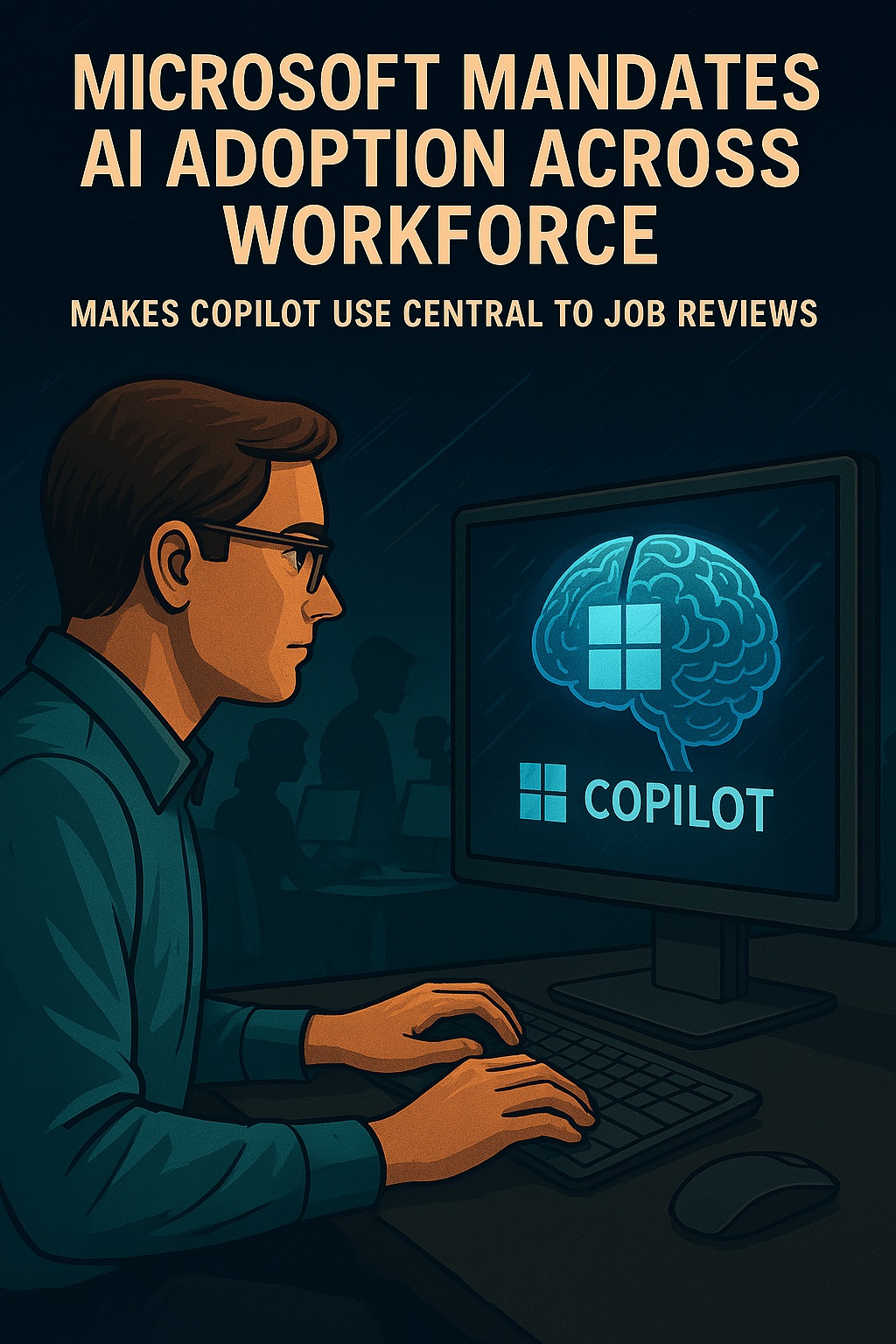🧠 Microsoft Mandates AI Adoption Across Workforce, Makes Copilot Use Central to Job Reviews

Microsoft has made artificial intelligence officially mandatory across its global workforce. In a sweeping policy shift, employees are now being evaluated on how effectively they integrate Microsoft Copilot and other generative AI tools into their daily roles. The move positions the company as a frontrunner in AI workplace transformation and sets a precedent for global enterprise strategy.
🔍 AI as a Core Metric in Performance Reviews
Beginning this quarter, all Microsoft staff are required to demonstrate meaningful use of AI technologies, especially Copilot, across key deliverables. According to internal sources cited by Business Insider and MSN, AI performance is now weighted alongside collaboration, communication, and productivity metrics in official reviews.
“AI is now a fundamental part of how we work,” said Julia Liuson, President of Microsoft’s Developer Division, in a recent internal session.
Employees will be graded not only on their output but also on their capacity to leverage AI to improve business outcomes, from content creation and data analysis to project documentation and software development.
📉 Culture Shift Amid Layoff Rumors and AI Investments
The AI integration requirement comes amid reports of internal restructuring, especially in Microsoft's Xbox, HoloLens, and Surface divisions. Several outlets have confirmed ongoing cost-cutting efforts and role eliminations.
This pivot is part of Microsoft’s broader move toward becoming an AI-first company. Over the past two years, the company has invested more than $20 billion into AI infrastructure and R&D, working closely with OpenAI, Nvidia, and Oracle to position itself as a market leader in artificial intelligence solutions.
🚀 Copilot: Microsoft’s Productivity Engine
At the core of this transformation is Microsoft Copilot, an AI-powered assistant deeply integrated into Microsoft 365 apps like Word, Excel, Teams, and GitHub. All employees are now expected to use Copilot for:
- Automating documentation
- Drafting communications and presentations
- Code generation and analysis
- Meeting summaries and project planning
- Data modeling and visualization
Internal training materials refer to Copilot as a “second brain,” urging employees to consider its use not optional but essential for competitive performance.
🌐 Broader Industry Implications
Microsoft’s move may influence how other tech giants—such as Amazon, Google, and Meta—approach internal AI adoption at scale. Industry analysts predict that enterprises across sectors will soon follow with similar mandates.
Educational institutions are already responding. For example, Harvard Business School is launching a new AI Strategy module, making it a core requirement for all MBA candidates starting this fall.
🧭 Final Thoughts
Microsoft's AI integration policy isn’t just a workplace update—it’s a seismic shift in how modern professionals are expected to work. By anchoring job performance to AI competency, the tech giant is defining the next generation of digital productivity—and reshaping the employer-employee relationship for the AI era.



0 Comments
No comments yet, be the first to comment